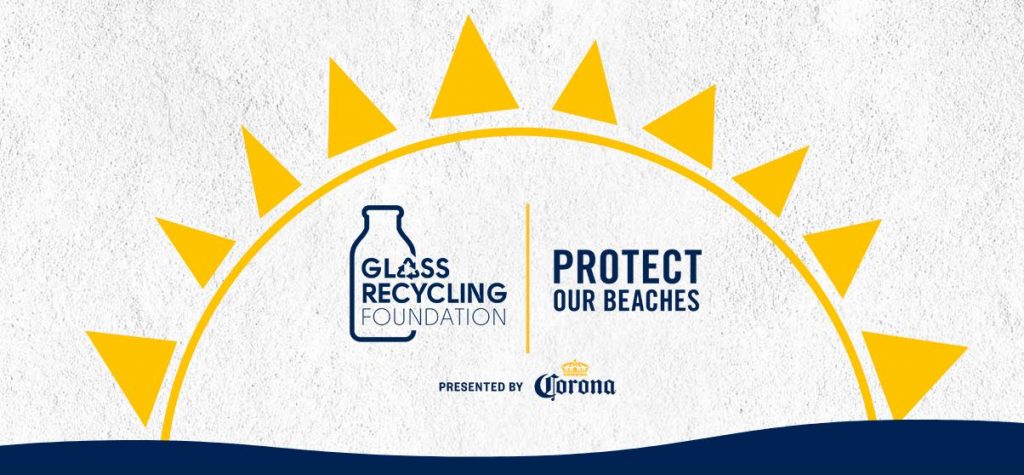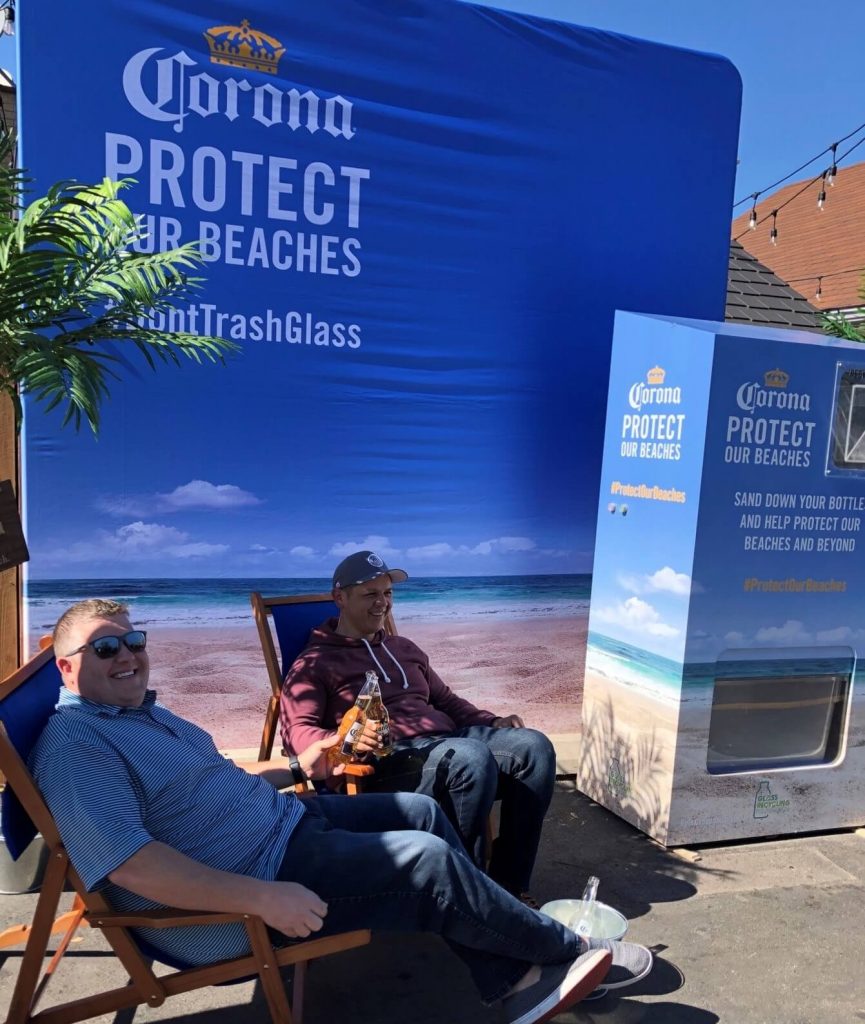
In a recent webinar hosted by the Illinois Recycling Association/Illinois Recycling Foundation (IRA/IRF), Scott Defife, President, Glass Packaging Institute and Glass Recycling Foundation (GRF), and Jeff Lang of Legacy Marketing described the Corona Protect Our Beaches program currently being deployed throughout Chicagoland.
According to GRF, more than 28 million glass bottles and jars end up in landfills each year, despite the fact that glass is endlessly recyclable. Recycling glass can protect the environment, economy, and sustainable manufacturing by capturing materials for reuse and keeping them out of landfills, as well as preventing litter from polluting the ocean and beaches.
To improve glass diversion from landfills and educate the public about the importance of glass recycling, Constellation Brands and its popular beer brand, Corona, have teamed up with GRF for a glass recycling initiative as part of the Corona Protect Our Beaches campaign.
This pilot program involves glass bottle recycling at Chicago-based bars and restaurants. Participating locations will separate their glass bottles into a separate bulk bin for pick up, starting in late June 2021. The GRF pays a hauler for the pick-ups; there is no cost to the participating locations. Any glass bottle, not just Corona-branded bottles, can be recycled, and no color sorting of bottles is required (as noted during the webinar Q&A). Additionally, a small amount of incidental contamination (e.g. napkins or straws) is acceptable. This creates a simple system for the participating pilot locations.
The glass recycling pilot will be paired with special events including an interactive experience that sheds light on the need for glass recycling and helps “crush the problem.” At these events, empty bottles will be turned into a sand-like powder using a grinding machine that allows members of the public to watch the process, thus capturing their attention and imagination. Event attendees learn about the program and the call to action, “#DontTrashGlass.” Select consumers will be able to feed empty bottles into the grinding machine. Events will also feature a sand art station for attendees to enjoy as they learn about the benefits of recycling glass. According to Defife and Lang, the grinding machine is actually relatively quiet; the generators used to power the machine at these events is louder than the machine itself. The sand-like substance fits well with the theme of Corona’s Protect Our Beaches campaign and brand identity. GRF recognizes that there are many ways to use recycled glass and beach restoration is one of them; in addition, bottles can become new bottles, fiberglass, construction aggregate, sandblasting, and more.

Over the course of nine weeks this summer, the grinding machine will tour ten different wholesalers and corresponding accounts. The complete list of grinding events is available at https://protectbeaches.com/events/. Events kick off on June 25 at two locations in St. Charles, IL, and one in West Chicago.
During the webinar, it was noted that additional restaurants and bars can be added to the pilot in the Chicagoland area by contacting Defife or Lang (their email addresses are provided at the end of the webinar recording). Also, the collaborative team is trying to figure out what it would cost to continue the recycling program beyond the pilot period. A similar pilot is taking place in Phoenix, AZ, in partnership with Glass King. At the end of the pilot the total tonnage of glass recycled will be measured to illustrate diversion impacts. Participating locations will also learn valuable information about the nature of their waste streams from those measurements.
Learn More
- Recording of the IRA/IRF Corona Glass Crusher Webinar
- GRF press release
- https://protectbeaches.com/events/
- Corona® USA Launches “Protect Our Beaches” Initiative With Oceanic Global To Help Turn the Tide on Plastic Pollution
- Presentation slides describing the similar effort in Phoenix, AZ
- GPI: Why Recycle Glass?
- GPI: Glass Recycling Facts
Links, company, and brand names are provided for informational purposes only and should not be construed as endorsements by ISTC or the University of Illinois at Urbana-Champaign.

